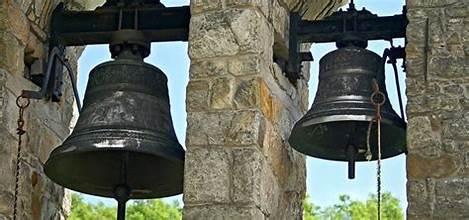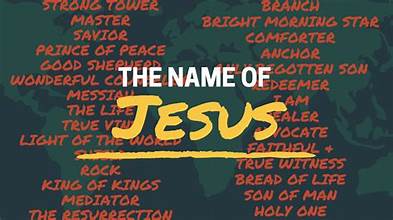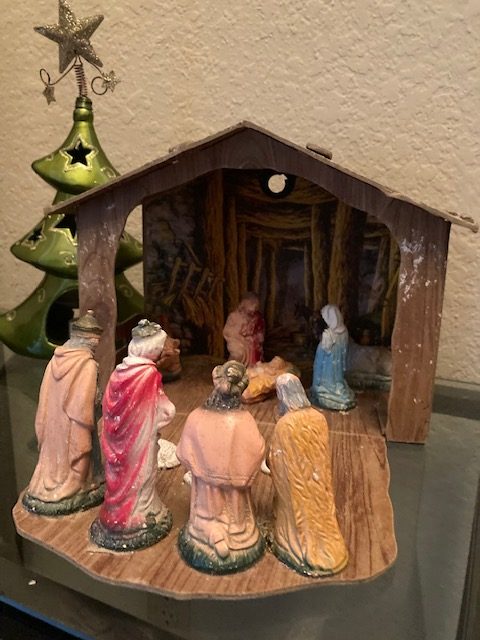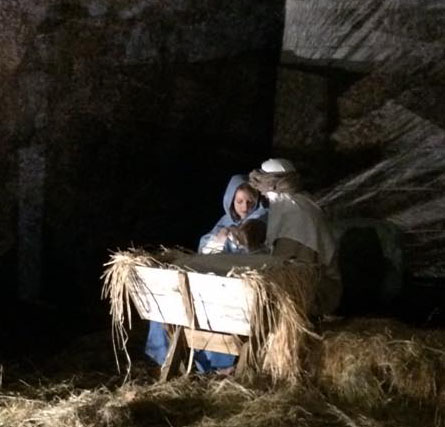Background Passages: Matthew 2:1-12
They have been called, throughout history, magi, wise men, astrologers and kings. While a great many of these royal counselors were sycophants and charlatans trying to stay in good graces with their kings, some were, indeed, learned men, scholars, faithful royal counselors.
Scripture typically paints an ugly picture of astrology, often mocking those who practiced the pseudo-science. (See Jeremiah 8:2 or Isaiah 47:13-15) It is somewhat remarkable that men of this ill-considered standing within the Jewish community found their way to the Bethlehem home of Mary and Joseph, intent upon laying their gifts at the feet of the newborn king of Judea.
Some biblical scholars suggest that God reversed the normal Jewish expectations and drew the stargazers to Judea to open the door, just a crack, for his desire to call Gentiles to Jesus.
Popular images of the magi clash with Matthew’s account. The Christmas hymn We Three Kings gives them titles they did not earn. They were counselors, not kings.
While the travelers from the East brought three gifts, the exact number of wise men who came is not revealed. What is clear in scripture is their numbers were sufficiently large and their quest so politically charged, given Herod’s insecurities, that it clearly created a disturbance throughout Jerusalem.
After Jesus was born in Bethlehem in Judea, during the time of King Herod, magi from the east came to Jerusalem and asked, “Where is the one who has been born king of the Jews? We saw his star when it rose and came to worship him.” When King Herod heard this, he was disturbed and all of Jerusalem with him. (Matthew 2:1-3)
The thought of a new king in the pipeline was an anathema to the paranoid Herod, but it drew a murmur of hope among the Jewish people eager to have a king to push out the Roman occupiers.
It’s a story you know because we see it played out in every Nativity scene. After their visit to the palace, the wise men journeyed on a few more miles to Bethlehem. There they found the toddler Jesus and his parents who had escaped the stable and found more permanent residence in a small house in the village.
On coming to the house, they saw the child with his mother Mary, and they bowed down to worship him. Then, they opened their treasures and presented him with gifts of gold, frankincense and myrrh. (Matthew 2:11)
Throughout history, giving gifts to a king was a long-standing practice. It served as a sign of respect and honor given to one who bore the title and responsibilities of king.
I Kings tells us that the Queen of Sheba brought a caravan of gifts to the newly crowned King Solomon in Israel.
And she gave the king 120 talents of gold, large quantities of spices and precious stones. Never again were so many spices brought in as those the Queen of Sheba gave to King Solomon. (I Kings 10:10)
Within Isaiah’s bold predictions about the coming Messiah, he speaks of these gifts.
They will bring gold and frankincense and proclaim the praises of the Lord. (Isaiah 60:6b)
Though I find them interesting, it’s not the magi who intrigued me this week, but their gifts. Gold. Frankincense. Myrrh.
If Matthew, under the inspiration of the Holy Spirit, took the time to specifically record the gifts, there must be a reason why. Each gift, according to folks smarter than me, matched some characteristic of Jesus and his work.
Gold has always been a precious and valuable metal. Gold was made into crowns, stamped and made into coins to be used as currency, and shaped into jewelry. The wise men brought gifts to a king. We can see the connection between gold for a king and Jesus as the King of Kings. They worshipped him as such.
What about the frankincense? Why is this one of their chosen gifts? Frankincense was used by Jewish priests in temple worship and burned as a sweet offering to God. It may be symbolic of the High Priest role Jesus assumes in our hearts. It is also a gift of worship, recognizing Jesus’ divine nature. Seeing him as one worthy of worship, honor and praise.
Then, there is the myrrh, a perfume connected with death and used in the burial process. In Mark, myrrh, mixed with wine, is offered to Jesus as he languishes on the cross. When the women who followed Jesus went to the tomb on that Easter morning to anoint his body, they carried myrrh with them.
While it is an odd gift to give a child, scholars see it as a hint toward Jesus’ sacrificial death. A gift to anoint his body in preparation for burial.
The scholars are probably right to share what those gifts meant symbolically for Christ. As our King of Kings. As one worthy of worship and praise. As one who came to give his life for the salvation of all who would believe.
The gifts point to who Jesus is. How he would live. What he would ultimately do for all of us.
Still, you know me, I read outside the box and between the lines. My journey to Jesus was not as arduous as the one experienced by the magi thanks to the godly examples of my Mom and Dad.
Though I came to him from West Texas, I still must come to him bearing gifts. If Jesus reigns as my King of Kings, what “gold, frankincense and myrrh” can I bring to him today?
What is my gold?
I could speak of tithes and offerings…returning to God a financial portion of that with which he has blessed me and my family. While I need to do that, I think it’s more than just that.
Gold was that thing valued most in the ancient world. A precious gift fit for a king. Bringing gifts of gold acknowledged the kingship of the one who sat on the throne. Maybe my gold is my willingness to declare Jesus as savior. Not just in that initial faith decision, but in the choice to make him the daily boss of my life. To yield and surrender my will to his each and every day. To declare him my Lord and king.
Then Jesus said to his disciples, “Whoever wants to be my disciple must deny themselves and take up their cross and follow me. For whoever wants to save his life will lose it, but whoever loses his life for me will find it. For what good will it be for someone to gain the whole world but forfeit his soul. (Matthew 16:24-26a)
This is the first nugget of gold I present to Jesus—my heart, my life presented to Christ as I declare him Lord. It is not, however, my last golden gift. Once I declare Jesus as Lord, I give him a life of devotion and obedience.
Do not offer any part of yourself to sin as an instrument of wickedness, but rather offer yourselves to God as those who are brought from death to life and offer every part of yourself to him as an instrument of righteousness. For sin shall no longer be your master because you are not under the law, but under grace. (Romans 6:13-14)
This is the second nugget of gold to lay at the savior’s feet—that the life I offer him becomes an instrument of righteousness.
What Jesus told his disciples and what Paul declared to the Romans is pure gold for my life today. Gold any wise man would give to the Christ-child this Christmas.
What is my frankincense?
The gift of frankincense is about worship, honor and praise. God breathes the sweet aroma of my frankincense when I spend quality time with him. Do I spend time studying his Word and learning how his word applies to my life circumstances? Do I have the kind of conversations with him that reveal my heart and take the time to listen to his spirit? Does my time at church in fellowship with other believers and my time in fellowship with the world around me point always to God? Is the time I give him quality time in devotion and service to him?
This frankincense attitude is the message Paul left with the Ephesians. We give our time and energy to God because he will take that time and do so much more than we think possible. It is to his glory and honor and praise.
Now to him who is able to do immeasurably more than all we ask or imagine, according to his power that is at work within us, to him be the glory in the church and in Christ Jesus throughout all the generations, forever and ever, Amen (Ephesians 3:21-22)
You see, worship is never about us. It is not whether I enjoy the music or the sermon. Worship is about giving glory, honor and praise to God with our whole being…heart, mind, body and soul. It’s about listening for his word, allowing it to make a difference in how we live and treat others.
What better way to worship him and give glory to his name than to walk in his ways? To set aside my own will for his will. To no longer think or act as the world does, but to change my mind and heart to mirror the mind and heart of God.
Therefore, I urge you, my brothers and sisters, in view of God’s mercy, to offer your bodies as a living sacrifice—holy and pleasing to God—this is your true and proper worship. Do not conform to the pattern of this world, but be transformed by the renewing of your mind. Then, you will be able to test and approve what God’s will is—his good, pleasing and perfect will. (Romans 12:1-3)
Presenting my all as a living sacrifice is my frankincense offering to the one who has given me everything.
What, then, is my myrrh?
The myrrh given by the magi represented the sacrificial life and death of Jesus. His great sacrifice of love.
You see, the other gifts of gold and frankincense…my commitment to Christ as savior, my decision to follow him, my choice to worship him in every aspect of life…will be less meaningful if my life is not lived in sacrificial love…my myrrh. Paul says to live without love for God and others is a “clanging cymbal.” All noise. No substance.
The myrrh I give my Jesus means to pour myself unselfishly into the lives of others. To love unconditionally and sacrificially. It is the way Paul chose to serve.
Even if I am to be poured out as a drink offering upon the sacrificial offering of your faith, I am glad and rejoice with you all. Likewise, you also should be glad and rejoice with me. (Philippians 2:17)
Like Paul, our labor for Christ….our gift of myrrh to him…is to pour ourselves into the lives of fellow believers and non-believers. To love them in ways that open the doors for them to come to know Christ as savior and to serve him faithfully.
This is our gift of myrrh.
Committing our life to Christ, worshipping him as one worthy of our praise and adoration and loving unconditionally, without reservation, requires sacrifice of our own desires, our own time, our own energy and effort. It is not easy. The cost of such discipleship is high. Jesus said as much.
Here’s the deal, though. When we give our gold, frankincense and myrrh to Jesus, he does the heavy lifting for us. He offers rest.
Come to me all you who are weary and burdened, and I will give you rest. Take my yoke upon you and learn from me, for I am gentle and humble in heart, and you will find rest for your souls. For my yoke is easy and my burden is light. (Matthew 11:28-20)
The wise men laid their precious gifts at the feet of a two-year-old child in a hovel of a home in Bethlehem, worshipping him as the king.
Their example poses a question for you and for me.
Will you bring your gold, frankincense and myrrh to Jesus?








